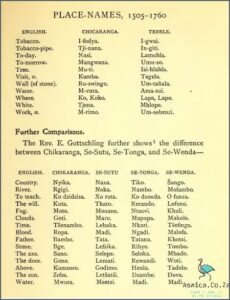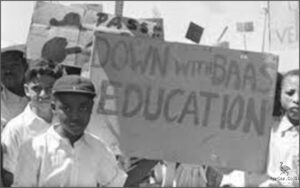
In 1954, the Bantu Education Act was passed in South Africa, legally segregating the education of Black and White children. The impact of this act was far-reaching and had a negative effect on the lives of Black people in South Africa. The act limited the type of education that Black children could receive, and as a result, many Black children were not able to get a proper education. This Act also created a divide between the Black and White communities, which still exists today.
Contents
How Did The Bantu Education Act Affect People’s Lives
The Bantu Education Act of 1953 had a deep and lasting effect on people’s lives in South Africa. It segregated education for black students and provided a much worse quality of education for them than white students received. This meant that black students were not given the same opportunities for success, education, and advancement as white students. The Bantu Education Act also increased racial tensions and resentment amongst the black community and made them feel like second-class citizens. This led to a rise in protests and civil unrest from black people who felt they were being unfairly treated. The Bantu Education Act also contributed to South Africa’s eventual Apartheid regime, which lasted until 1994. In short, the Bantu Education Act had a devastating impact on the lives of black South Africans and continues to be felt today.
Impact of the Bantu Education Act on education
The Bantu Education Act of 1953 had a profound and long-lasting impact on the lives of South Africans, especially those of African descent. In essence, the Act sought to separate people of color from whites in education and other aspects of life. This was part of the apartheid system that was in place in South Africa during this time.
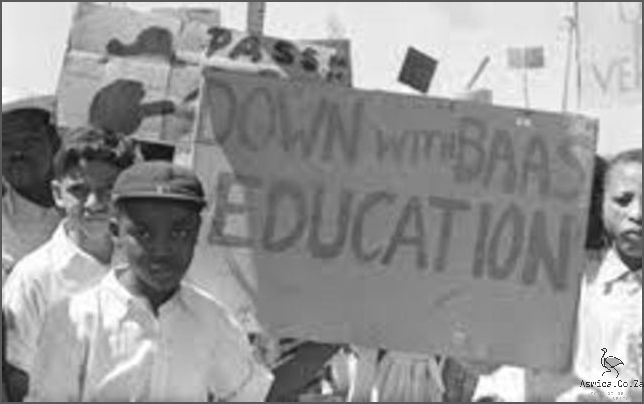
The Act led to the creation of separate schools and universities for black students, with a curriculum that was vastly inferior to that of white schools. Black students were taught a limited curriculum, with a focus on vocational skills and manual labor. This was in stark contrast to the curriculum offered at white schools, which included advanced science and technology courses. This meant that black students had a much lower chance of gaining access to higher education and, ultimately, better employment opportunities.
The Bantu Education Act also meant that black teachers had to be trained and certified by the government, which led to the formation of a black teaching profession. This created a new barrier to entry that further limited the number of black teachers who could teach in the classroom.
The overall impact of the Bantu Education Act was to create a system of segregation that would be extremely difficult to reverse, even after the end of apartheid. The Act also had a huge impact on the educational opportunities available to people of color in South Africa, with many black students having missed out on the chance to gain an education that would allow them to gain access to better job opportunities. This has had a long-lasting impact on the economic and social development of the country, and has been a major source of inequality in South Africa.
Social and cultural effects of the Bantu Education Act
The Bantu Education Act of 1953 was a watershed moment in South African history. It established a separate and inferior educational system for black South Africans, effectively entrenching the apartheid system and its attendant inequalities. The Act had far-reaching implications for South African society, as it affected a generation of people, from the way they were educated to the careers and opportunities available to them.
The Act had a profound effect on the social and cultural aspects of South African life. It forced the segregation of education, creating a two-tiered system in which the quality of education for black students was vastly inferior to that of white students. This had long-term effects on the economic and social development of black South Africans, as they were denied access to quality education and the opportunities that would have come with it.
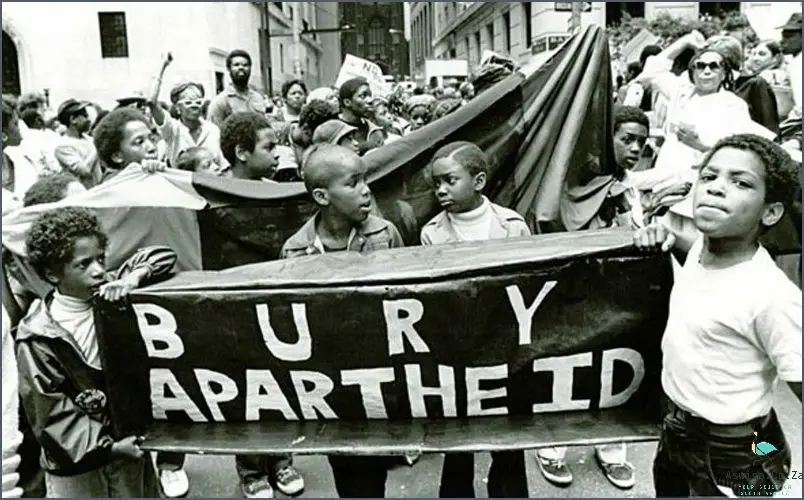
The Act also caused a sharp decline in the quality of teaching in black schools. Teachers were poorly paid, often lacked qualifications and had limited resources. This contributed to a poor standard of education, hindering the development of critical thinking skills, which in turn had a negative impact on the social and cultural development of black South Africans.
The Act was also detrimental to the culture of South Africa as a whole. It perpetuated the apartheid system, which denied black South Africans access to the same rights and privileges as white South Africans. This had a profound effect on the culture of South Africa, as it created a culture of oppression, inequality and racism.
The Bantu Education Act had a significant impact on the lives of South African citizens. It had a wide-ranging effect on the social and cultural aspects of South African life, resulting in decreased educational opportunities and a culture of oppression. It is a reminder of the legacy of apartheid and its long-term implications for South African society.
Political implications of the Bantu Education Act
The Bantu Education Act of 1953 was a law passed by the South African government that had a profound and lasting impact on the lives of people living in the country. This act focused on segregating the educational system in South Africa, with the intention of providing inferior schooling to Black South Africans. The Act was seen as a major step in the apartheid government’s agenda to keep black South Africans subjugated and impoverished.
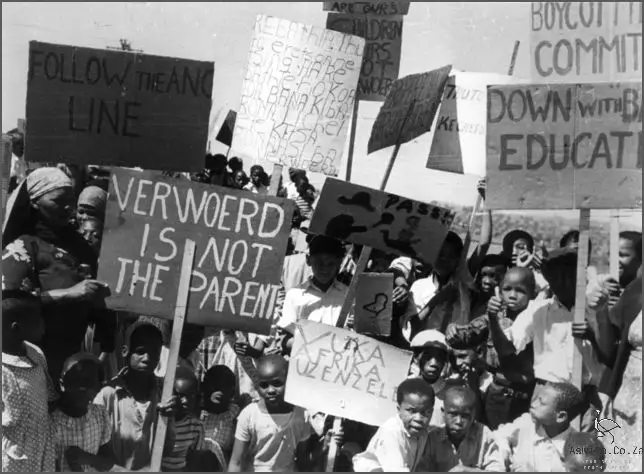
The Act had a devastating effect on the educational prospects of Black South Africans. The government increased the number of black schools, but these were segregated and underfunded. The curriculum was also designed to produce a subservient workforce rather than educated citizens. Black students had to adhere to a strict code of conduct, while white students were allowed to express themselves more freely. Furthermore, teachers in black schools were underpaid and often had to rely on donations from parents or other sources.
The Act had serious political implications, as it served to reinforce the apartheid government’s grip on power. By controlling the education system, the government was able to ensure that black South Africans lacked the skills and knowledge to challenge the government’s policies. This enabled the apartheid government to continue its oppressive policies without any meaningful opposition.
The Bantu Education Act also had a lasting impact on the social and economic development of South Africa. The inferior quality of education meant that black South Africans were unable to compete in the job market, leading to a widening of the economic gap between white and black South Africans. As well as this, the Act meant that black South Africans were unable to obtain higher education, leading to a lack of opportunities for social and intellectual progress.
The Bantu Education Act was a major factor in the continued oppression of black South Africans. It had serious political, social and economic implications, and its legacy can still be felt today. The Act was eventually repealed in 1994, but its damaging effects will take many more years to undo.
Conclusion
The Bantu Education Act of 1953 had a profound impact on the lives of people in South Africa. The Act formalized the segregation of education and had a dramatic effect on the quality of education available to black South Africans. Many schools were shut down and students were forced to attend inferior and overcrowded institutions. This resulted in many students receiving an education that was far below the standards of white-only schools. Additionally, the Act included policies that put black students at a disadvantage when it came to university admissions and career opportunities.
Overall, the Bantu Education Act had a devastating effect on the lives of many South Africans. It further entrenched the inequality between white and black South Africans and contributed to the continued oppression of black South Africans. Consequently, its legacy is still felt in the country today, and it serves as a reminder of the racism and injustice that existed in South Africa during the Apartheid era.


